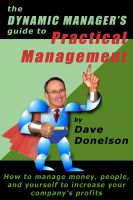We sometimes fool ourselves into thinking that people are so used to shopping unaided in the aisles of mass-market retailers that they don’t want to be bothered by pesky sales people, but nothing could be further from the truth. What customers don’t like is a clerk hanging around putting silent pressure on them to make a decision. While there may be a few independent souls who want to browse unaided through a plan-o-gram full of merchandise, most people appreciate the expert advice and guidance of a knowledgeable retail sales person, especially when they’re shopping for something more complicated than a bottle of shampoo.
A good retail salesperson does their best work when they help a customer figure out what they need in order to accomplish their goal or fix their problem. Which means, of course, that your staff has to know what they’re talking about. They need to know the lines you carry and what the products do—and don’t do. They need to be able to answer the prospect’s questions and even to suggest questions that the prospect should be asking. If they don’t know the answers, they should know where and how to get them—and make it clear to the customer that they’re willing to do the extra work cheerfully.
Helpful service like this means the sales person needs another set of tools, too: good communication skills. Sometimes, it’s not enough to just ask the customer what he wants. The sales person may need to do a little probing about the customer’s needs or desires before he or she can suggest a good solution. They need to know what kinds of questions to ask and—even more importantly—they need to listen to the answers. Some customers will be able to tell you exactly what they’re looking for, what size they want, and even where it’s located in your inventory. A far greater majority of them, though, are like patients in the doctor’s office; they need somebody to listen to their symptoms, to tell them why it hurts, and to prescribe something they can do about it.
Dave Donelson distills the experiences of hundreds of entrepreneurs into practical advice for small business owners and managers in the Dynamic Manager's Guides, a series of how-to books about marketing and advertising, sales techniques, motivating personnel, financial management, and business strategy.
Tuesday, March 27, 2012
A Customer-Friendly Retail Environment
Tuesday, March 20, 2012
Negotiating In The Retail Store
Helpful negotiation tactics for retail salespeople:
● Stay cool. If a customer asks for a lower price, remember that it’s just a business transaction, not a judgmental comment on your artwork, your gallery, or you.
● Know your limits, but don’t go there right away. If the customer can talk you into two small concessions rather than one big one, they’re more likely to be satisfied with the deal.
● Ask for something in return. A customer may be willing to use cash rather than a credit card, put their name on your mailing list, or give you something else of value in return for a lower price.
● Use negotiation to close the sale. “If I give you this price, will you buy it now?” is a great way to separate buyers from lookers.
In today’s economy, you can expect more and more retail customers to test the firmness of your prices. If you keep your wits about you and exclude emotions from the process, though, you can use that trend to build your sales.
Dave Donelson distills the experiences of hundreds of entrepreneurs into practical advice for small business owners and managers in the Dynamic Manager's Guides, a series of how-to books about marketing and advertising, sales techniques, motivating personnel, financial management, and business strategy.
Tuesday, March 13, 2012
Taking Stress Out Of Negotiations
Negotiating has earned its reputation as an unpleasant process in large part because it is inherently stressful. Stress is produced when something or someone blocks a person from obtaining a desired goal, which just about defines the process of negotiation. Each party is blocking the other one in some way. “I won’t buy unless you give me this” is just another way of saying, “You can’t obtain your goal (to get the order) because my demand (to get the concession) is blocking your way.”
Two other stressful things happen in negotiation. The blocks generally get bigger and bigger as the easy concessions are made early and the tough ones—the big price cut or the large volume order—are left to the end. And, the closer you get to the end, the closer each person feels to achieving his or her goal. The carrot is dangled closer and closer to the donkey’s nose.
Stress, stress, stress. That’s the real reason many people feel uncomfortable when put into a negotiating role. The uncertainty of the outcome is stressful. The pressure to make multiple decisions is stressful. The fear of feeling outfoxed is very stressful. It’s certainly a lot less stressful to say, “Sorry, our prices are firm. Take it or leave it.” You get the pain over with.
Negotiation doesn’t have to be that way. I’m not saying that you’ll eliminate the uncertainty, the decision-making, or the possibility of leaving some money on the table, but you can make the process less stressful if you have the right attitude.
The better way, of course, is win/win negotiation, where both parties recognize that the value side of the equation is not finite. If you can focus on building the value of the deal, both the buyer and the seller generally win. Win/win negotiation is at the heart of the Creative Selling System because it focuses on need satisfaction.
Dave Donelson distills the experiences of hundreds of entrepreneurs into practical advice for small business owners and managers in the Dynamic Manager's Guides, a series of how-to books about marketing and advertising, sales techniques, motivating personnel, financial management, and business strategy.
Sunday, March 4, 2012
Free Books To Celebrate Read An eBook Week
Celebrate Read An eBook Week with 50% off all my full-length books at Smashwords.com. Enjoy any (or all!) of my novels and Dynamic Manager books by using this coupon code when you check out: REW50. Hurry, the sale ends March 10!
Hunting Elf, a doggone Christmas story
The Dynamic Manager's Guide To Advertising: How To Grow Your Business With Ads That Work
The Dynamic Manager’s Guide To Marketing: How To Create And Nurture Your Best Customers
The Dynamic Manager’s Guide To Marketing & Advertising: How To Grow Sales And Boost Your Profits (includes both advertising and marketing books)
The Dynamic Manager’s Guide To Sales Techniques: How To Create New Prospects And Make More Sales
The Dynamic Manager's Guide To More Sales: How To Nurture Customers And Grow Your Business
The Dynamic Manager's Guide To Creative Selling: How To Make More Sales And Build A Super Sales Career (includes both sales books)
The Dynamic Manager’s Guide To Practical Management: How To Manage Money, People, And Yourself To Increase Your Company’s Profits
As a special bonus, Blind Curve, my collection of short stories, is available this week for free! Just use coupon code REW100.
Check out the thousands of other titles available with big savings at Smashwords.com through March 10. You'll find eBooks for all reading devices--Kindle, Nook, iPad, and others.
Dave Donelson distills the experiences of hundreds of entrepreneurs into practical advice for small business owners and managers in the Dynamic Manager's Guides, a series of how-to books about marketing and advertising, sales techniques, motivating personnel, financial management, and business strategy.








